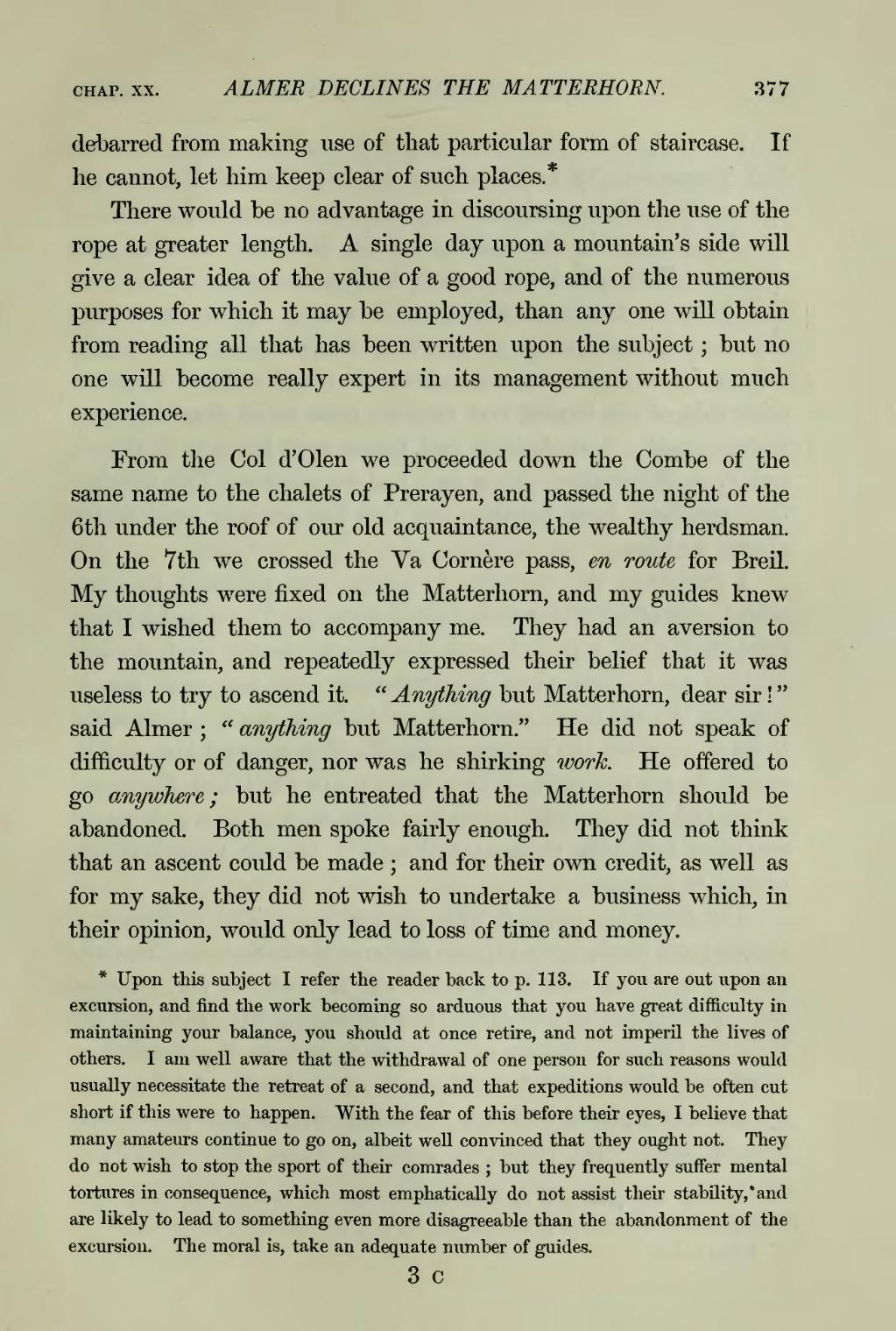debarred from making use of that particular form of staircase. If he cannot, let him keep clear of such places.[1]
There would be no advantage in discoursing upon the use of the rope at greater length. A single day upon a mountain's side will give a clear idea of the value of a good rope, and of the numerous purposes for which it may be employed, than any one will obtain from reading all that has been written upon the subject; but no one will become really expert in its management without much experience.
From the Col d'Olen we proceeded down the Combe of the same name to the chalets of Prerayen, and passed the night of the 6th under the roof of our old acquaintance, the wealthy herdsman. On the 7th we crossed the Va Cornère pass, en route for Breil. My thoughts were fixed on the Matterhorn, and my guides knew that I wished them to accompany me. They had an aversion to the mountain, and repeatedly expressed their belief that it was useless to try to ascend it. "Anything but Matterhorn, dear sir!" said Almer; "anything but Matterhorn." He did not speak of difficulty or of danger, nor was he shirking work. He offered to go anywhere; but he entreated that the Matterhorn should be abandoned. Both men spoke fairly enough. They did not think that an ascent could be made; and for their own credit, as well as for my sake, they did not wish to undertake a business which, in their opinion, would only lead to loss of time and money.
- ↑ Upon this subject I refer the reader back to p. 113. If you are out upon an excursion, and find the work becoming so arduous that you have great difficulty in maintaining your balance, you should at once retire, and not imperil the lives of others. I am well aware that the withdrawal of one person for such reasons would usually necessitate the retreat of a second, and that expeditions would be often cut short if this were to happen. With the fear of this before their eyes, I believe that many amateurs continue to go on, albeit well convinced that they ought not. They do not wish to stop the sport of their comrades; but they frequently suffer mental tortures in consequence, which most emphatically do not assist their stability,' and are likely to lead to something even more disagreeable than the abandonment of the excursion. The moral is, take an adequate number of guides.
